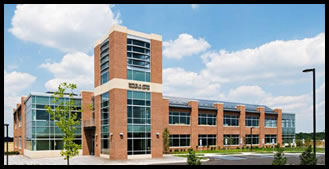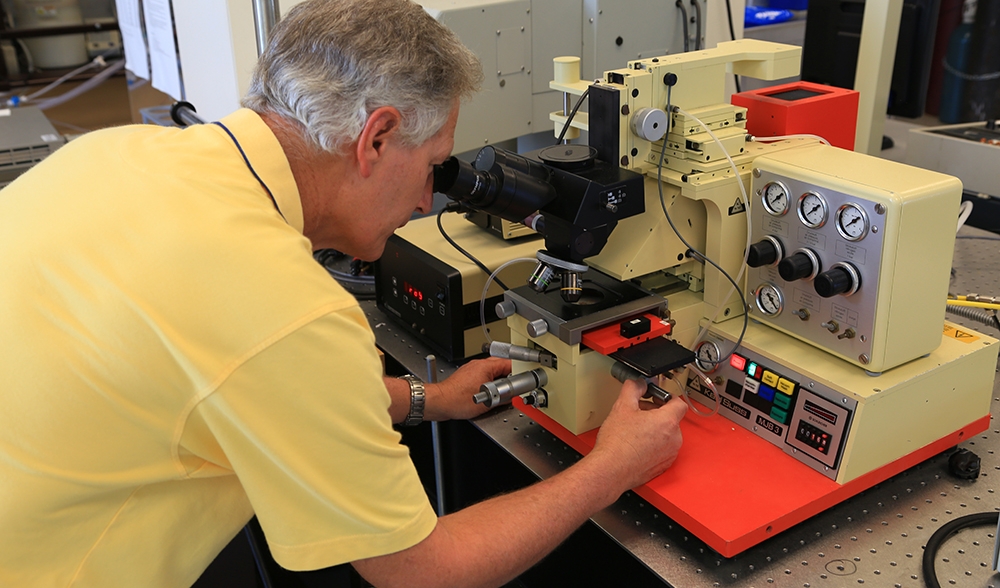Research
Research
Research Overview

Samuel Jones Hall at South Jersey Technology Park (above)– Home of many of the ECE research labs.
ECE Research Labs at Rowan Hall and South Jersey Technology Park
In addition to state-of-the-art teaching labs, the ECE department also maintains cutting-edge research labs. The best news, all of these labs are available to all undergraduate and graduate students through their clinic projects, course work or other research activities.
Our research facilities are located in Rowan Hall on our main campus (soon to move to the new Engineering Building) and at the South Jersey Technology Park. You can learn more about each lab under the Research tab on the navigation bar on the left or the links below.
In addition to ECE labs listed here, the College of Engineering also provides a wide array of laboratories and facilities available to all students. All engineering programs at Rowan promote and enable multidisciplinary and cross-disciplinary studies. This is enabled not only by the college-wide Engineering Clinic sequence, but also facilities that are available to all engineering students. These facilities include a well-equipped machine shop with CNC equipment, welding shop, woodshop and other labs that provide manufacturing and fabrication capabilities.
Computational Intelligence & Machine Learning
Will computers ever be able to make intelligent decisions based on currently available information & acquired experience & knowledge?
MAVRC
MAVRC is a research center dedicated to exploring the dynamic fusion of Virtual Reality (VR) & Artificial Intelligence (AI). MAVRC is redefining the boundaries of immersive experiences.
Signal & Speech Processing
Algorithmic & mathematical techniques for intelligent processing of signal & images so that more relevant & reliable information can be extracted.
Materials & Nanotechnology Lab
More information coming soon
Electronics & Bioinstrumentation
More information coming soon
Discrete Event Systems
DES are typically processes associated with the systems which are discrete (in time and space), asynchronous (event-driven rather than clock driven), and nondeterministic.
Complex Signals & Optimizations
A system with multiple, strong interacting units or activities that, in order to understand, involves the use of additional implementations.
Integrated Nanoelectronic Systems
The biomedical field requires the use of electronic devices that are small enough to fit inside a human body. The study of memristors is opening new avenues.
Smart Sensors & Center for Sustainable Design
Improving energy efficiency, while also investigating the use of wind and solar energy to power our future electrical grid, should make our society more sustainable.
Educational Research
More information coming soon
Tough Talk Graduate Seminar
ToughTalk is a weekly seminar, given by graduate or undergraduate students, as well as faculty and distinguished guests on their active research projects.
Integrated Nanoelectronic Systems
Dr. Shin is studying emerging technologies that deal with electronics on a very small level, allowing them to be placed inside the body for biomedical purposes.
